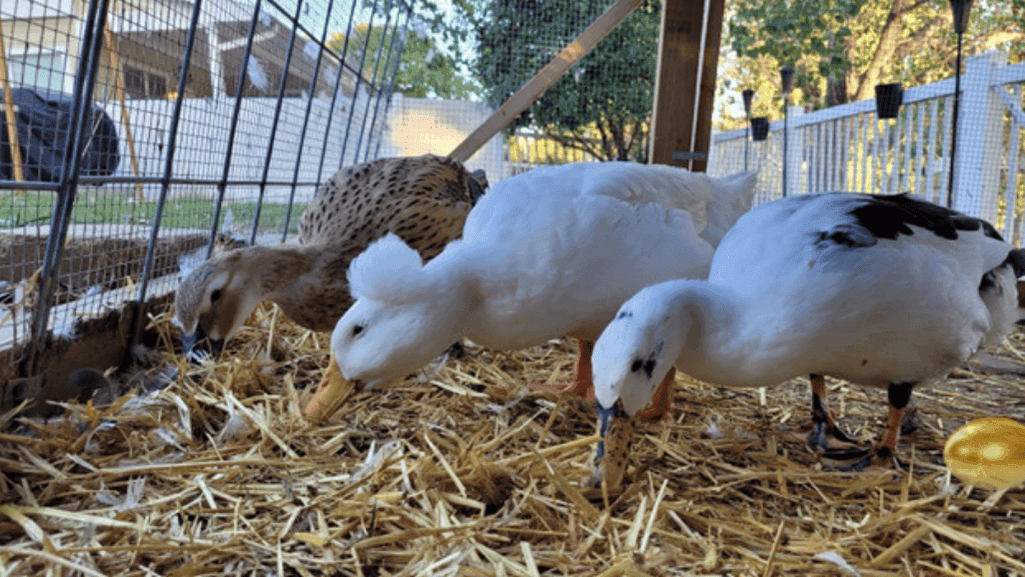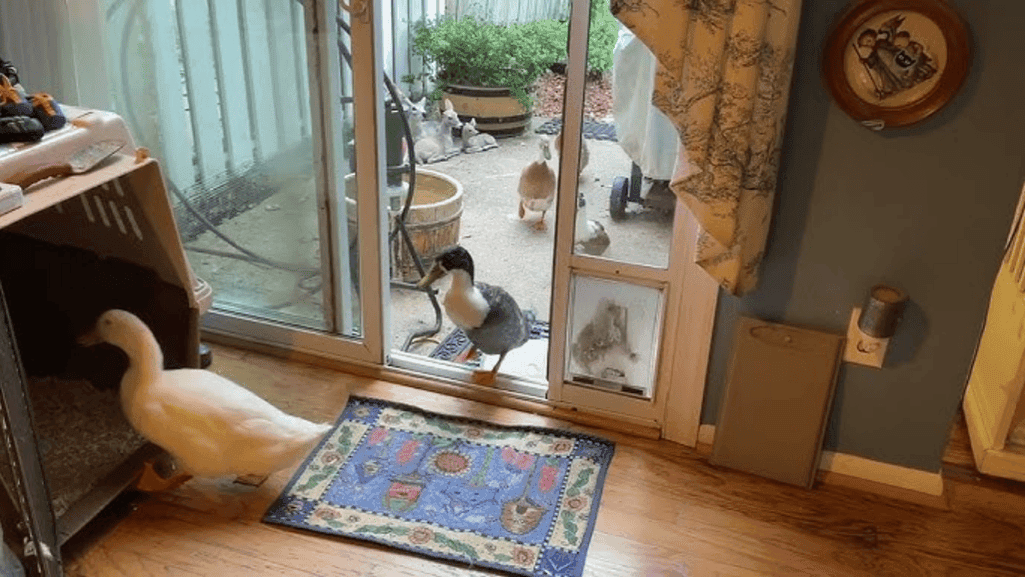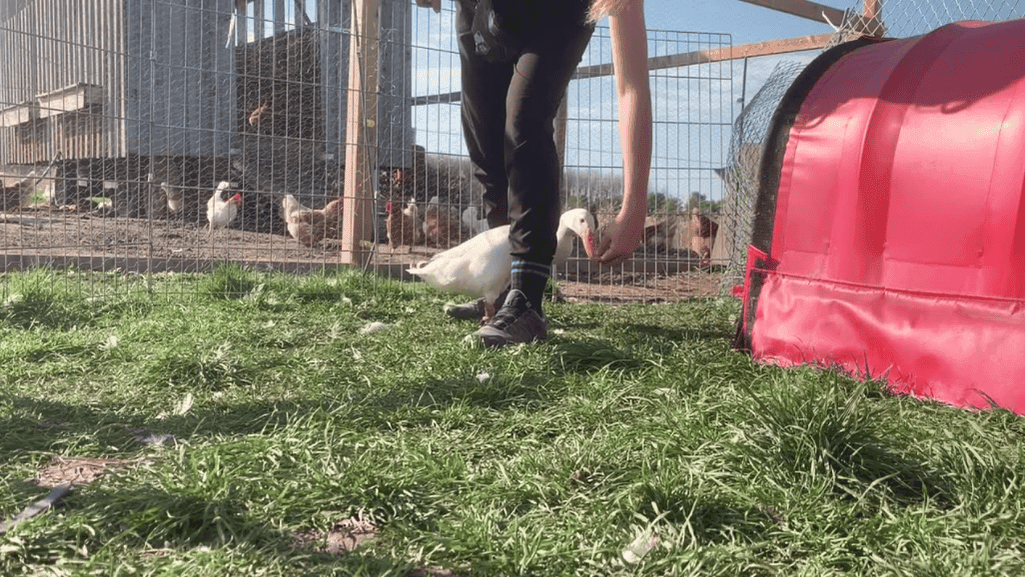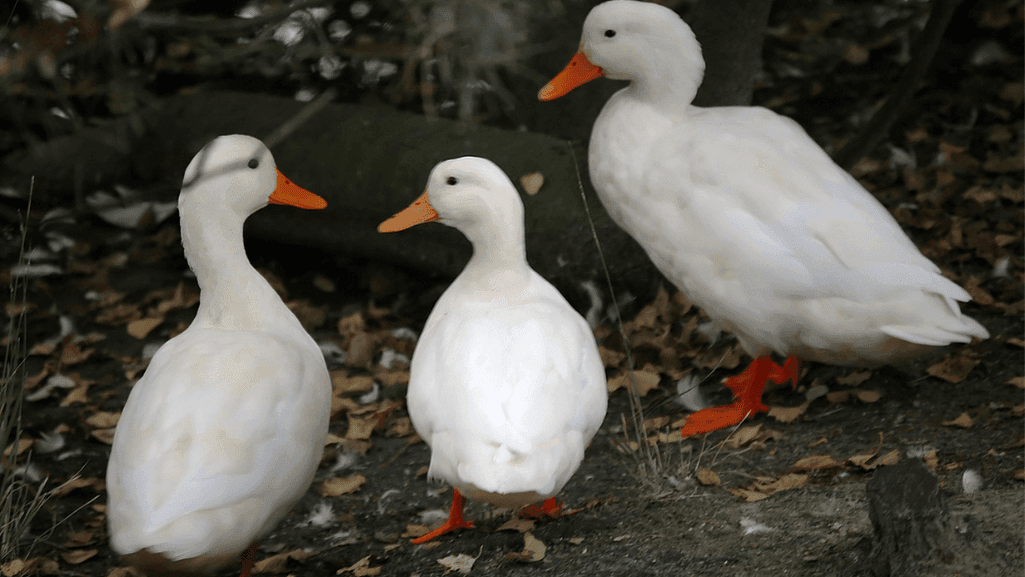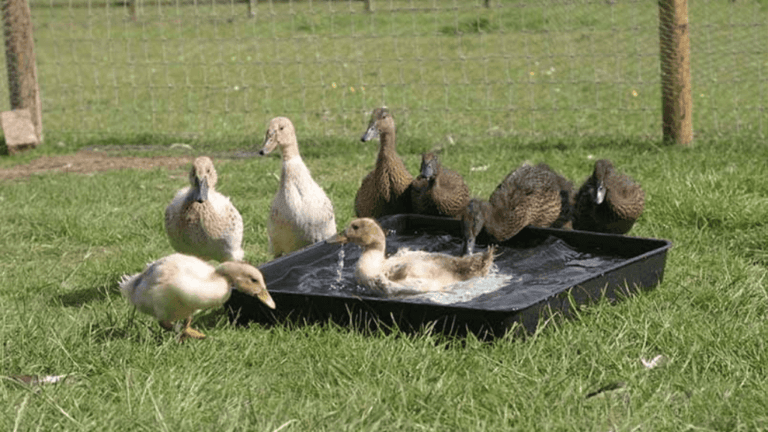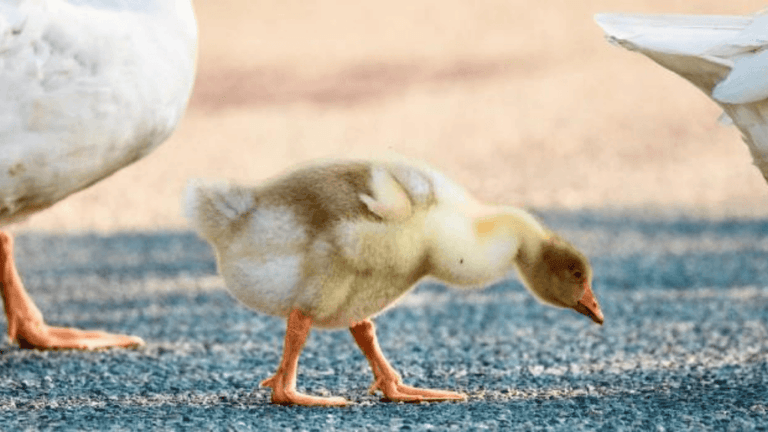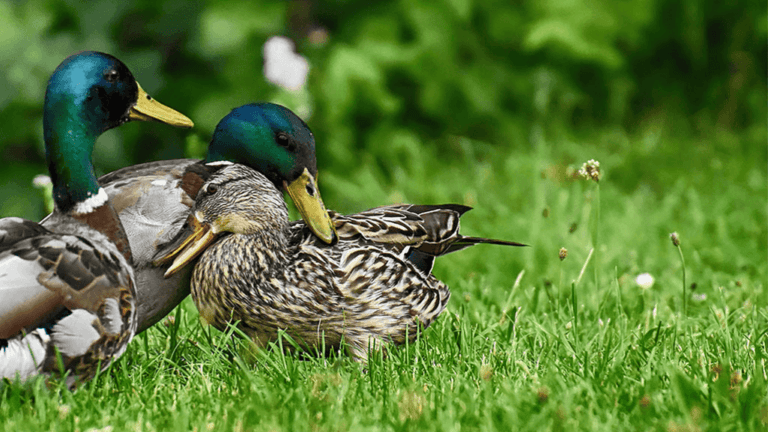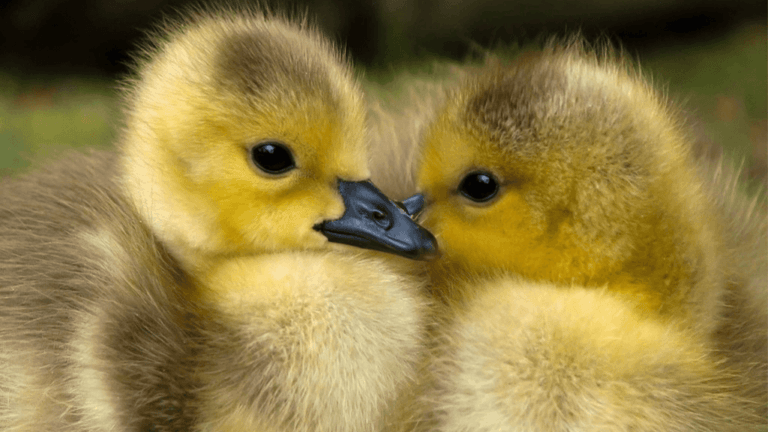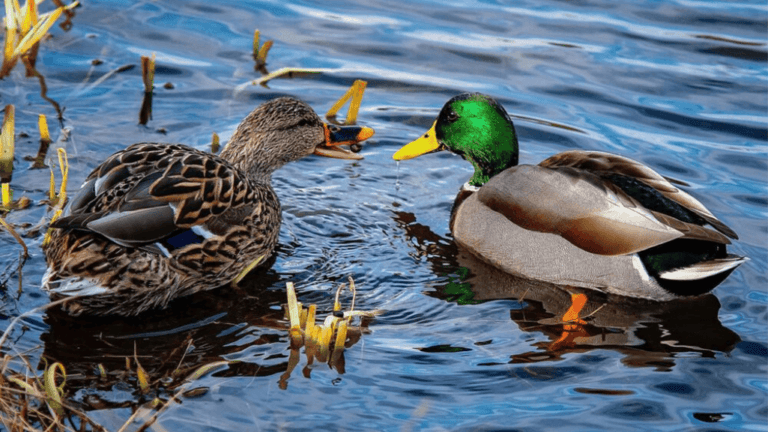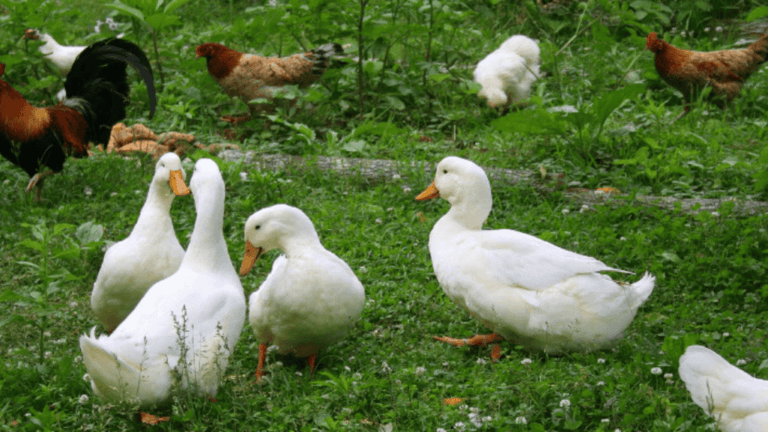Many people don’t think of ducks as pets, but they can be loving and fun. Ducks can live up to 20 years, making them great companions. They are smart and social, learning commands and playing games.
They need clean water and special food to stay healthy. Before getting a duck, think about the space and rules in your area. Training them is key to a happy home.
Ducks have been pets for almost 10 years. Some people like them more than chickens for eggs. Duck eggs taste better and are healthier than chicken eggs.
Ducks need daily time outside for fun. They must be safe outside. Keeping two ducks together makes them happier.
Indoor ducks need special care, like grit for digestion and sunlight. They make a mess, so cleaning up is important. With the right care, ducks can be great pets.
Key Takeaways
- Ducks can live up to 20 years in captivity, requiring a long-term commitment from their owners
- These intelligent and social creatures can learn commands, play games, and show affection when raised from a young age
- Ducks need a constant supply of clean water, unmedicated feed, and adequate space to thrive
- Local regulations and possible health issues, like salmonella and avian flu, must be considered before getting pet ducks
- Indoor ducks have specific needs, including daily outdoor time, access to grit, proper diapering, and a duck-friendly feeding station
Understanding the Characteristics of Domestic Ducks
Domestic ducks are fascinating creatures with unique personalities and traits. They have their own behavior, intelligence, and ways of communicating. Knowing these traits helps you care for them better and enjoy a harmonious relationship.
Common Duck Breeds for Pets
Several duck breeds are great as pets. Some popular ones include:
- Cayuga ducks, known for their iridescent black feathers and friendly temperament
- Pekin ducks, the most common domestic duck breed, with their distinctive white plumage
- Runner ducks, recognized for their upright posture and energetic personality
Each breed has its own unique characteristics. Research carefully to find the best fit for your lifestyle and preferences.
Social Behavior and Intelligence
Ducks are highly social creatures, thriving in the company of their own kind. They form strong bonds with each other and can even develop attachments to their human caregivers. Ducks are intelligent animals, capable of learning simple commands and adapting to various environments. It’s important to never keep a duck alone, as solitary life can lead to depression and behavioral issues.
Ducks exhibit fascinating social dynamics within their flocks. Male ducks, or drakes, can be territorial and aggressive during mating season, which typically lasts from mid-February to mid-July in the northern hemisphere. To maintain harmony, experts recommend keeping at least 3-4 female ducks per drake. Female ducks may also be less welcoming to new ducks when a drake is present, as they tend to have preferred mates.
Vocalization and Communication
Ducks communicate through a variety of vocalizations, each serving a specific purpose. Their distinctive quacks can convey different messages, from greetings to warnings. Interestingly, duck vocalizations can also help determine their sex at around 6 weeks of age. Paying attention to your ducks’ communication will help you better understand their needs and behavior.
By familiarizing yourself with the characteristics of domestic ducks, you’ll be well-prepared to provide a loving and enriching home for these intelligent and social creatures. Remember to prioritize socialization, maintain a balanced flock dynamic, and always be attentive to your ducks’ unique personalities and needs.
Setting Up Your Home for a Duck
Welcoming a duck into your home needs careful planning. You must create a safe and comfy space for them. Ducks have special needs to be happy and healthy. By setting up indoor duck housing right, your duck will love their new home.
Essential Space Requirements
Ducks need at least 4 square feet of floor space each. They also need 10-20 square feet of outdoor space. A 2x4x4 feet duck house is perfect for two ducks. Remember, ducks like to be together, so plan for more space for them to grow.
Safe and Comfortable Bedding Options
Choose safe, comfy, and easy-to-clean bedding for your duck. Straw or wood shavings are good choices because they keep warm and dry. Always change the bedding to keep things clean. Make sure the duck house has openings at the top to let out moisture.
Enrichment Activities for Indoor Ducks
Ducks are curious and need things to do. Give them duck toys and chances to explore. Here are some ideas:
- Shallow water dishes for bathing and splashing
- Interactive toys such as floating balls or hanging mirrors
- Supervised outdoor time in a secure enclosure
- Foraging opportunities with scattered treats or hidden food puzzles
“Ducks are habitual and once they consider a place safe, they will likely return there.”
By making a fun and enriching space for your indoor duck, you’ll build a strong bond. This will make your duck happy and healthy for a long time.
Nutrition and Diet Considerations
It’s key to give your pet ducks a balanced diet for their health. Ducks need different food than chickens. Knowing what they eat, their treats, supplements, and water needs is important for their well-being.
Types of Food Ducks Need
Ducks need the right food at the right age. Ducklings need starter feed with brewer’s yeast for niacin for ducks. Niacin helps with strong bones and legs, not found in chicken feed. As they grow, they can eat pellets or mash with greens, grit, and oyster shells.
“Peas are a good source of niacin for ducks, specially when they are young.”
Treats and Supplements for Health
Quality duck feed should be the main part of a duck’s diet. Adding veggies as treats can give extra nutrients. Healthy treats include:
- Mealworms and freeze-dried bugs
- Plain yogurt and scrambled eggs
- Leafy greens like romaine lettuce and dandelion greens
- Fresh herbs such as oregano, basil, and parsley
- Fruits like berries, melon, and grapes
- Cooked vegetables, including peas, corn, and broccoli
But, avoid unhealthy foods like bread, pasta, crackers, onions, spinach, citrus fruits, and avocados.
Watering Needs and Management
Duck hydration is vital. They need clean, deep water for drinking, bathing, and cooling. Wetting their feed helps, but throw away uneaten mash to avoid mold. Backyard duck breeds love to forage and swim, so a pool or pond is great for them.
By knowing what your ducks need and giving them the right food, treats, and water, you can keep them healthy and happy.
Basic Training Techniques for Ducks
Training your pet duck can be very rewarding. It strengthens your bond with your feathered friend. Ducks may not be as easy to train as dogs or cats. But, with patience and consistency, they can learn basic commands and tricks.
One effective method for duck obedience training is clicker training.
Clicker Training Overview
Clicker training uses a small device that makes a clicking sound. It marks the desired behavior. When your duck does the right thing, you click and give them a treat.
This helps them connect the behavior with the click and reward. It encourages them to do it again.
Commands to Teach Your Duck
Start with simple commands like “come,” “stay,” and “touch.” Use the clicker and treats to reinforce these behaviors. For example, when teaching “come,” click and treat your duck every time they come to you.
Gradually increase the distance. Click and treat when they successfully come to you.
Tips for Effective Training Sessions
Keep these tips in mind when clicker training ducks:
- Break complex tricks into smaller, manageable steps
- Keep training sessions short, positive, and consistent
- Ducks learn best with repetition in a distraction-free environment
- Always end on a high note and reward progress
Remember, training sessions for ducks under six months should not exceed 5 minutes. Those between 6 and 12 months can last up to 20 minutes. Just 10 minutes a day, three to four times per week, can lead to great results in your duck trick training journey.
“Patience and consistency are key when training ducks. Celebrate the small victories, and never give up on your feathered friend.”
Health Care Needs for Pet Ducks
As a responsible pet duck owner, keeping your feathered friend healthy and happy is essential. This means regular vet visits, vaccinations, and watching for illness signs.
Finding an experienced avian veterinarian is key for your duck’s health. Annual check-ups help keep your duck in top shape. Your vet can also offer advice on diet, housing, and care.
Vaccinations and Preventive Measures
Keeping your duck up-to-date on vaccines is vital, more so if they go outside. Talk to your vet about the right vaccines for your duck’s lifestyle. Vaccines can protect against diseases like:
- Duck viral enteritis
- Duck viral hepatitis
- Fowl cholera
Preventive care is also important. A balanced diet, clean living space, and parasite control boost your duck’s health.
Recognizing Signs of Illness
Knowing the signs of illness in your duck is critical. Look out for:
- Lethargy and decreased activity
- Diarrhea or abnormal droppings
- Labored breathing or respiratory issues
- Loss of appetite or sudden weight loss
- Discharge from eyes or nostrils
If you see these signs, call your vet right away. A pet duck first aid kit can help with minor injuries until you get professional help.
Prevention is the best way to keep your pet duck healthy. Clean living, proper food, and regular vet visits will help your duck stay well and happy.
Common Challenges of Keeping Ducks Indoors
Keeping ducks indoors can be rewarding but comes with challenges. Issues like socialization, noise, and mess management need attention. Owners must be ready to face these problems head-on.
One big concern is socialization. Ducks need to interact with humans and other ducks to stay happy and calm. Spend time with your ducks, talk to them, and give treats to build a strong bond.
Noise and Mess Management
Ducks can be loud, which might upset neighbors. Training them to be quiet and soundproofing their area can help. Also, ducks need to go to the bathroom often, so they need duck diapers and regular cleaning.
“For every ‘Where can I buy ‘pet’ ducks?’ search on Google, there is an alarming number of ‘Where can I give my ducks away?’ queries related to people realizing that caring for ducks is more substantial than anticipated, leading to neglect or abandonment.”
Behavioral Problems and Solutions can you train a duck to be a house pet
Behavioral issues can happen with indoor ducks. It’s important to address these early with positive methods. Give your ducks enough space, fun activities, and a good diet to avoid problems.
Knowing these challenges and finding solutions can make life better for you and your ducks. Proper socialization, managing noise and mess, and training can create a happy home for everyone.
Legal Considerations for Keeping Ducks
Before you bring ducks home, you need to know the laws. Local rules can change a lot. It’s key to check your area’s laws to follow them. Some places have laws about how many ducks you can have, if you can have roosters, and what kind of housing they need.
Local Regulations and Restrictions
Start by talking to your local zoning or animal control. They can tell you about any rules for keeping ducks. Even if your neighbors have ducks, the laws might have changed. So, it’s always good to check again.
Some common rules include:
- How many ducks you can have at home
- No roosters because of noise
- How much space your duck house needs
- How close your duck house can be to your property line
Permits and Licensing Information
In some places, you need backyard duck permits or licenses. These permits tell you about duck housing rules, like how big the coop should be and what materials to use. If you don’t follow these rules, you could face fines or have to get rid of your ducks.
It’s hard to find vet care for ducks. Only a few vets can help, showing how rare it is to get professional help.
To be a good duck owner, learn about the permit process and any costs. Talk to your neighbors about any worries they have. This way, you can make sure your ducks are safe and happy, and you’re a good neighbor too.
The Benefits of Having Ducks as Pets
Ducks can be great pets for those who are willing to care for them. They offer unique benefits that dogs and cats don’t. Ducks can be great companions, educational tools, and even therapy animals.
Companionship and Bonding
Ducks form strong bonds with their owners. They are social and love to interact. Some breeds, like call ducks, are very affectionate and enjoy being petted.
When cared for, ducks can become your best friend. They show love through neck bobbling and excited quacking.
Educational Opportunities for Families
Keeping ducks as pets is educational for families, kids in particular. It teaches about animal care, responsibility, and empathy. Ducks can also be great subjects for school projects or homeschooling.
Encouraging Responsibility in Children
Children learn responsibility by caring for ducks. They learn the importance of consistent care. Ducks are also safe for kids to learn about animal interaction.
As emotional support animals or in pet therapy, ducks can comfort and reduce stress for everyone.


